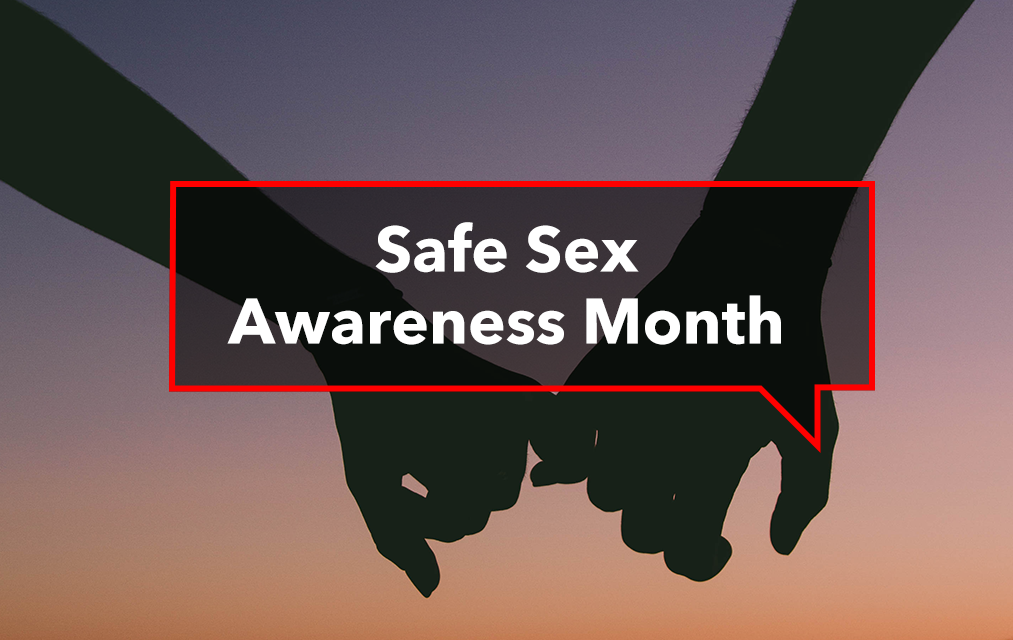Safe Sex Awareness Month

September is Sexual Health Awareness Month or Safe Sex Awareness Month, and we are getting you ready for it. The annual observance promotes responsible sexual behavior and encourages individuals to practice safe sex.
The awareness month aims to educate people about the risks of unprotected sex and the importance of using protection to prevent sexually transmitted infections (STIs) and unintended pregnancies.
This article will discuss the significance of safe sex awareness, the importance of safe sex practices, and different ways to prevent STIs.
The Significance of Safe Sex Awareness Month
Safe Sex Awareness Month is a time to encourage young adults to take control of their sexual health and promote safe sex practices. Safe sex prevents unwanted pregnancies and reduces the risk of contracting and spreading STIs, including HIV, chlamydia, gonorrhea, herpes, and syphilis.
The Importance of Safe Sex Practices
Safe sex practices are essential for protecting yourself and your sexual partner from STIs and unintended pregnancies. These practices include:
1. Managing Emotional State
One important aspect of safe and responsible sex that young adults should understand is the role of emotions in sexual activities. While sexual desire and attraction can be intense, it is essential to remember that emotions can cloud judgment and lead to poor decision-making.
It is important to be aware of your emotional state before engaging in sexual activities and to communicate your feelings with your partner. It is also important to be aware of your partner’s emotional state and sensitive to their needs and desires.
2. Consistent and Correct Use of Condoms
Condoms are highly effective at preventing the transmission of STIs and can also help avoid unintended pregnancies. It is important to use condoms correctly and consistently, even if you or your partner use other contraception.
3. Regular STI Testing
Getting tested for STIs is an essential part of responsible sexual behavior. It is important to get tested regularly, especially if you are sexually active with multiple partners. Many STIs have no symptoms, so routinely getting tested is the only way to know if you have an infection.
If you have an STI, getting treatment as soon as possible is important to prevent complications and further transmission.
4. Communication With Sexual Partners
Communication is key to responsible sexual behavior. It is essential to talk openly and honestly with your sexual partner about your sexual needs and desires. Ensure you both feel comfortable discussing your boundaries, likes, and dislikes. It is also important to communicate about contraception, STI testing, and any concerns you may have.

5. Avoiding Risky Sexual Behaviors
Engaging in risky sexual behaviors, such as having unprotected sex with multiple partners or engaging in sexual activities while under the influence of drugs or alcohol, increases the risk of contracting and spreading STIs.
It is important to be aware of your sexual behaviors and to avoid engaging in behaviors that put you and your partner at risk.
6. Preventing STIs
Preventing STIs is an important part of responsible sexual behavior. In addition to practicing safe sex, there are other ways to prevent the transmission of STIs, including:
7. Getting Vaccinated
Vaccines are available for certain STIs, including human papillomavirus (HPV) and hepatitis B. Getting vaccinated can reduce your risk of contracting these STIs.
8. Choosing Sexual Partners Carefully
It is important to choose sexual partners carefully and to be aware of their sexual history. Engaging in sexual activities with individuals with a history of STIs increases your risk of contracting an infection.
9. Practicing Good Hygiene
Practicing good hygiene, such as washing your genitals before and after sexual activities, can help reduce the risk of contracting and spreading STIs.
10. Seeking treatment
If you think you may have an STI, it is important to seek treatment as soon as possible. Many STIs can be cured with antibiotics, but treatment is essential to prevent complications and further transmission.
11. Avoiding Intoxication
Avoiding intoxication is important for responsible lovemaking. It is essential to control your actions and decisions when engaging in sexual activities. Intoxication can impair judgment, leading to risky behaviors and non-consensual activities.
If you drink or use drugs, do so responsibly and avoid engaging in sexual activities while under the influence.
12. Adhering to the Relevant Laws
Lastly, it is also important to understand the legal implications of sexual activities. In many countries, engaging in sexual activities with a minor or without consent is illegal and can have serious legal consequences. It is important to be aware of the legal age of consent and to ensure that all parties involved have given their clear and enthusiastic consent.
It is also important to be aware of legal obligations, such as reporting suspected abuse or seeking medical attention for STIs.
Conclusion
Safe Sex Awareness Month is an important time to promote responsible sexual behavior and raise awareness about the importance of safe sex practices. Practicing safe sex, getting tested regularly for STIs, and communicating openly with sexual partners are essential for protecting yourself and your partner from STIs and unintended pregnancies.
Remember that preventing STIs is an ongoing process that requires continuous awareness and vigilance. Contact us to learn more about a safe and healthy lifestyle.

